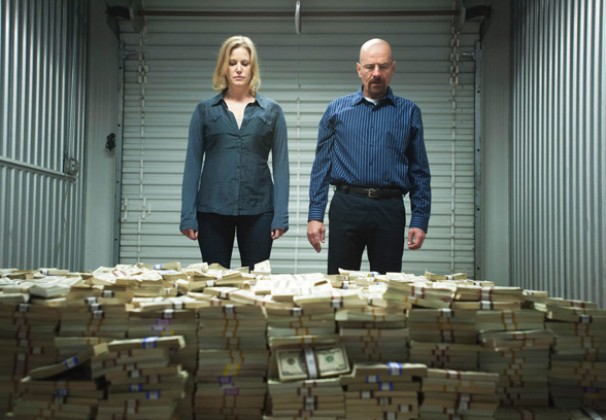
For anyone with their finger on the pulse of television, there is an unmistakable buzz in the air signifying the end of an era. On Sept. 29, AMC ends its hit series “Breaking Bad” after five seasons, and it’s difficult to escape the number of classmates, co-workers and passersby discussing the impending finale.
But the week before the show’s final episode on Sept. 22, Showtime also ended its long running, once critically acclaimed “Dexter” with an finale that barely registered in comparison to the buildup for “Breaking Bad.” The two shows demonstrate strinking similarities. They are post-“Sopranos” antihero sagas following damaged protagonists in their journey of degradation. And both of these finales raise the question how long is too long for a show to stay on the air?
Throughout the history of television, there have been cult classics that ended too soon, or mass hits that a network keeps on despite a decrease in quality. And in between, there have been exceptional shows that hit the sweet spot, ending at the highest point in the series.
But hitting that mark is harder than one would think. It’s a bit of an overstatement to say that a show’s lasting impact hinges on a good finale, but it’s not too far off. ABC’s “Lost” received a lot of criticism from fans for its series finale. For many, the greatness of the show was tainted by a finale that failed to address some of the major plot points.
The list of shows that ended too soon is a long one, and it’s filled with classic shows that have since gained cult followings. “Freaks and Geeks” and “Party Down” are just a few of the many shows that go down in television history as those that ended too soon, but this allowed them to remain forever cherished in viewers’ memories. They never had the opportunity to “jump the shark” — the notorious phrase coined from “Happy Days,” a show that will forever be remembered as being on the air past its prime.
Even the biggest fans of a show would prefer an ending that came too soon. Fans may think they want their favorite show to go on forever, but subconsciously they know that if a show goes on for too long, it’s all too easy to lose its footing. Take Showtime’s “Weeds,” for example. This was a show that started as a clever dark comedy poking fun at the banality of suburbia that slowly fell apart once the original conceit was lost and milked dry through its eight season run.
However, one can’t put the blame solely on the networks or the writers. They are equally responsible for the overall trajectory of a show. In the case of “Breaking Bad,” Vince Gilligan and the executives at AMC decided to end the show on a series high — and the electricity in the air surrounding these final episodes is proof enough that they found the perfect time for the finale.
A version of this article appeared in the Wednesday, Sept. 25 print edition. Chris Saccaro is a staff writer. Email him at [email protected].























































































































































